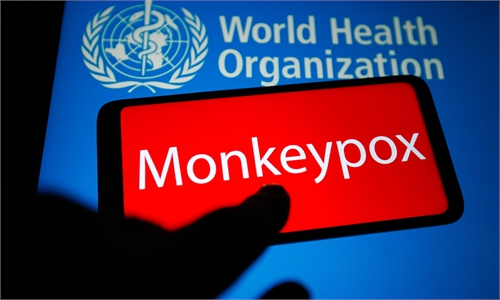Research shows low mRNA vaccine risk for teens
Researchers from Australia's Monash University have completed a study of vaccine-associated myocarditis risk in adolescents, showing that risks are "mild" and outweighed by the long-term risks of COVID-19.
The study, published in the Medical Journal of Australia on Monday, followed the course of 33 adolescents, between the ages of 12 and 18, who presented to Monash Children's Hospital with typical symptoms of myocarditis following receiving a COVID-19 vaccine.
Led by Suraj Varma, a paediatric cardiologist at Monash Heart and Monash Children's Hospital, the study was the largest of its kind for a single children's hospital.
Varma and her team said that all of the patients recovered after an average of just over two days.
"COVID-19 mRNA vaccine-associated myocarditis has a mild, self-resolving clinical course, in contrast to reported complications and long-term sequelae associated with COVID-19, such as multisystem inflammatory syndrome in children, and other forms of myocarditis," said the report.
Myocarditis is a viral infection that causes inflammation of the heart muscle, and is a rare side effect of mRNA vaccines. The condition has offered fuel for the spread of vaccine misinformation and anti-vaccine rhetoric.
A separate study of the instances of myocarditis following an mRNA vaccine published in Nature Reviews Cardiology in December 2021 estimated that less than 0.005 percent of people who received a vaccine developed the condition. Rates in young people, under the age of 35, were slightly higher than across all ages.
The Monash study showed that even in extremely rare cases, the disease was mild and self-resolving.
The study, published in the Medical Journal of Australia on Monday, followed the course of 33 adolescents, between the ages of 12 and 18, who presented to Monash Children's Hospital with typical symptoms of myocarditis following receiving a COVID-19 vaccine.
Led by Suraj Varma, a paediatric cardiologist at Monash Heart and Monash Children's Hospital, the study was the largest of its kind for a single children's hospital.
Varma and her team said that all of the patients recovered after an average of just over two days.
"COVID-19 mRNA vaccine-associated myocarditis has a mild, self-resolving clinical course, in contrast to reported complications and long-term sequelae associated with COVID-19, such as multisystem inflammatory syndrome in children, and other forms of myocarditis," said the report.
Myocarditis is a viral infection that causes inflammation of the heart muscle, and is a rare side effect of mRNA vaccines. The condition has offered fuel for the spread of vaccine misinformation and anti-vaccine rhetoric.
A separate study of the instances of myocarditis following an mRNA vaccine published in Nature Reviews Cardiology in December 2021 estimated that less than 0.005 percent of people who received a vaccine developed the condition. Rates in young people, under the age of 35, were slightly higher than across all ages.
The Monash study showed that even in extremely rare cases, the disease was mild and self-resolving.



